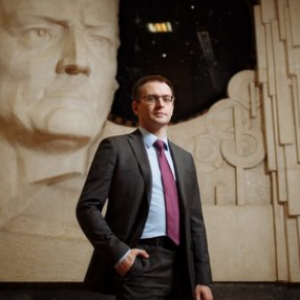Samara University became an initiator of creation of Consortium of Higher Educational Establishments of the Privolzhsky Federal District (PFD) “University Technological Entrepreneurship.” It could involve in developing the technological entrepreneurship over 30 regional higher educational establishments, however the university does not have its own startup studio in spite of the presence a startup center and technological park. How are tools of the Platform of University Technological Entrepreneurship integrated into educational and research processes and in which direction will the future education have been changing? These questions were answered by Vladimir Bogatyrev, Rector of Samara National Research University.
How does the Platform of University Technological Entrepreneurship work in the Samara Region and, in particular, in your University?
We can tell about this federal project a lot and for a long while. We have participated in it since 2022, and in fact we have a significant result over the last three years.
Firstly, we are a federal platform for training entrepreneurial competences. Due to 30 partner universities engaged into the project, we could teach more than 19 thousand students and postgraduate students in the PFD. It seems to me that this is very significant result creating just a critical mass of students who begin thinking: whether they need technological entrepreneurship, startup projects, create a startup team.
Moreover, accelerators where students who have decided that they are ready to develop in the technological entrepreneurship, created their group, already have their own ideas and who are ready to show these ideas to mentors and business angels go are of great importance. Business angels can provide with primary funding, and investors can become members of novel legal entities.
What further plans does the University have as regards to developing the technological entrepreneurship?
Of course, we look forward to participating in further events of the Platform. We confirmed a status of trainings provider, take part in the competition on selecting training platforms.
But at the same time, we are building an own system for working with startups in the University, including with assistance of novel organizational units.
We already created the startup center, organized the Tochka Kipenia. While we do not have a startup studio, we strive to create a comprehensive system that would provide startup teams and startup projects with infrastructure in order they could switch from an idea to building a team and producing and marketing a product.
Investments are the most sensitive issue for the majority of startuppers. Is there a business in the region, which is interested in the university’s startups and ready to invest in such projects?
If we look in retrospect, then let us assume that business, at least a large one, was not really interested five years ago. Large petroleum companies or state corporations developed their own business and were rarely interested in startups.
However, literally during recent years, we observe the attention from their side as well. Representatives of business are interested in small innovation enterprises. They are in demand when it is necessary either to outsource any its internal process or to launch the procedure of mergers and acquisitions, or when a startup have a novel product that a state corporation does not have. In this case they often completely buy the business and integrate it into their companies. Revulsion in mood of business, development of interest in startups from its side is observed literally in the last one-two years, at least it is visible only now.
Conventionally, startups are funded (and it is still the main line) firstly from own funds or at the expense of business angels. Then venture funds are joined, and at the latest stages when efficacy and potential are visible serious investors begin their job. Thus, of course, it is not possible to expect that companies will participate in the life of startups.
For outsiders, Samara’s economics is possibly primarily associated with aerospace. In the field of the technolgical entrepreneurship, in which domains are your startups firstly developed?
If we take a look at such startups that in our University are defended in a format of graduate qualification work or so called diplomas (such defenses have been already performed for several years in our University), then these are predominantly projects in the field of IT: various geoinformational services, academic products, software products for calculations.
You have touched aerospace technologies. Unfortunately, there are only single examples in this field, because it is difficult to create something new in this field from one’s own fund or at the expense of business angels. It is too expensive. However, we also have such companies, at present they try to enter the market of manufacture of engines, drones and equipment for drones.
In this year, Samara University actively participated in the All-Russian Forum of Technological Entrepreneurship in Moscow and even was its partner. What did you draw at the forum from other participants, which practices did you note for yourself?
For me, one of the most important message was the following thought: if we engage in technological entrepreneurship, then we must implement this in the core educational process.
Therefore, we not only must have respective disciplines in academic programs, but the entire process of training must be reconfigured: it must include the same mentors and business angels.
One more interesting thought: we need to use not only so called “ejection strategy” but also “pulling strategy.” So when your funnel of startups includes small number of these projects, you as a university must take these student ideas and grow them up to completed groups and finished products until the funnel is saturated with a plurality of projects. We need to work with existing staff.
Source: ria.ru
